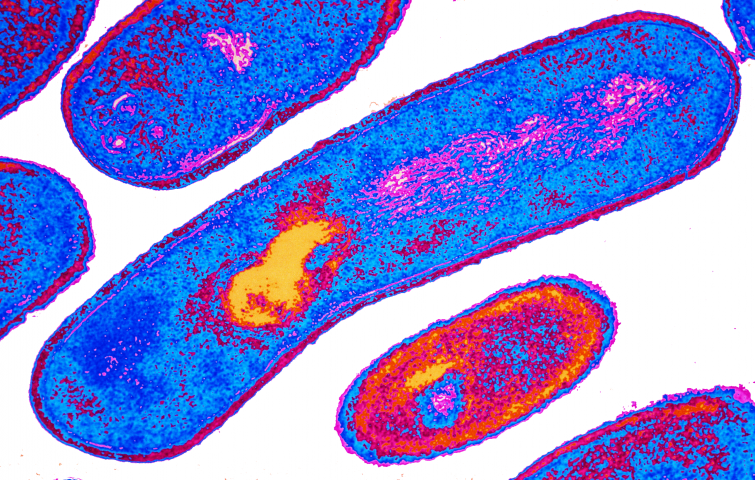
 News
News
Gut microbiota: surprising interactions between pathogenic and commensal bacteria
In achieving a state of equilibrium in the body, the billions of microbes that form assemblies known as microbiota at various sites including the gut, the skin and the oral cavity play an important role. The absence of microbiota results in increased exposure to some diseases. Scientists from the Bacteria-Cell Interactions Unit at the Institut Pasteur, in collaboration with INRA and Inserm, have discovered that Listeria bacteria produce a toxin – a bacteriocin – which affects their interactions with the gut microbiota and particularly targets the commensal bacteria Prevotella copri. This finding reveals a potential therapeutic strategy for some diseases, especially inflammatory diseases associated with an increase in Prevotella copri.